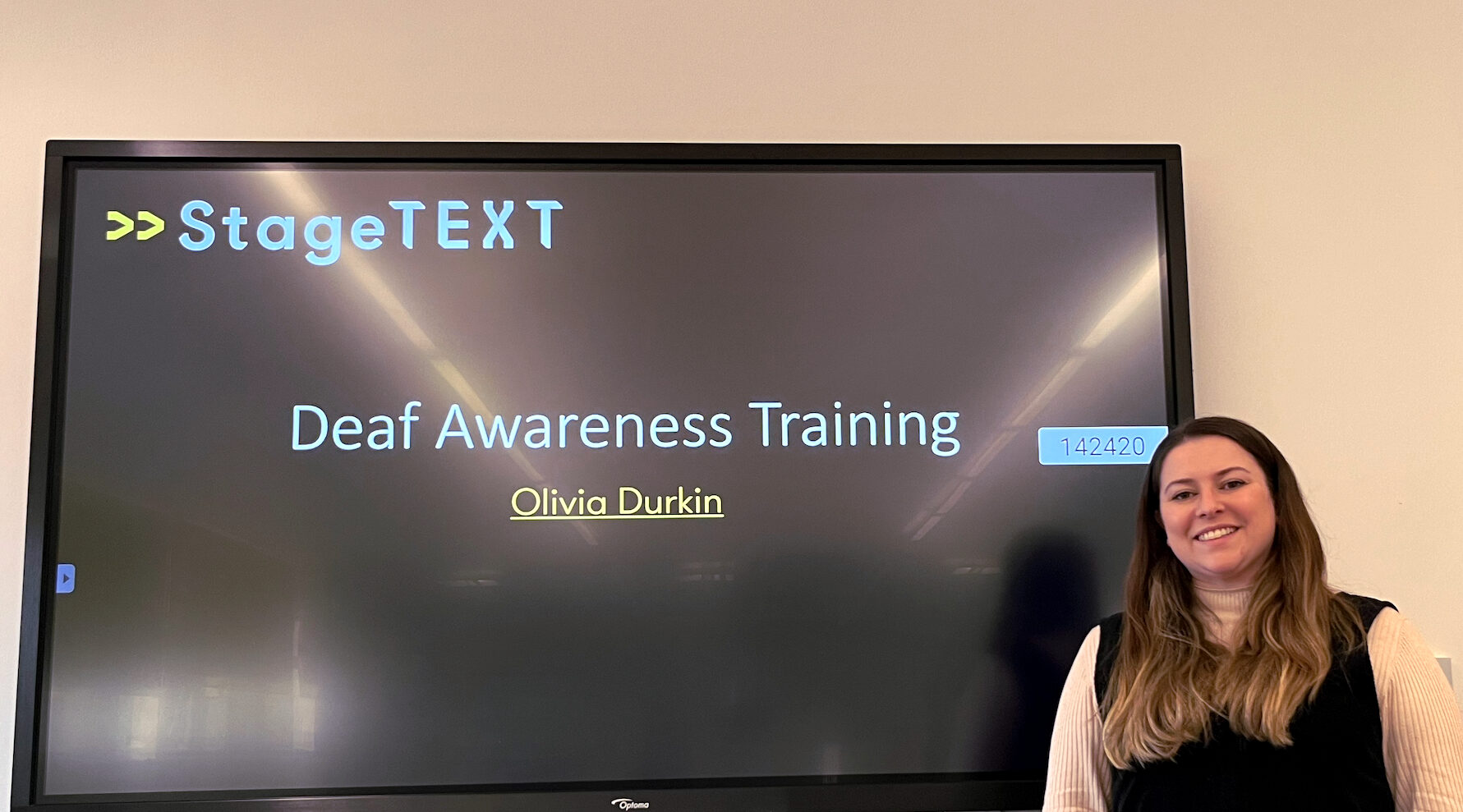To mark International Women’s Day, we’re shining a light on Olivia Durkin. She is Stagetext’s Head of Training and Theatre and a rising star in deaf access to the arts. We chatted with Olivia and found out what drives her passion for access.
What brought you to Stagetext?
‘I studied Sociology and Social Policy at the University of Leeds, this was where my interest in the world of access started. I love theatre and I’m deaf, so access is very important to me. I’ve been working in Stagetext’s theatre department since 2017, which brings together two of my great passions, access and the arts. I am now heading up the training department, helping venues to provide better access, so it’s an exciting job. I love all things theatre but since working for Stagetext it has opened an amazing variety of talks and digital content for me.’
What does access to the arts mean to you?
‘I’m deaf, so access is key for my enjoyment of the arts. Not wanting to sound too dramatic, but access to the arts is everything to me. In a more general sense, I think access provides the feeling of inclusivity that just didn’t exist 25 years ago. I feel lucky to be around at a time where text-based access like captions and subtitles are available.’
What is the best thing about your job?
‘I love it when a deaf audience member leaves the theatre saying they had a great time and can talk about their favourite parts with their friends and family. This is something that is not so easy without captions, you can miss plot points and you have to work hard to follow the content.’
‘In training sessions, I love seeing the ‘lightbulb moment’ for people learning how to be a more accessible member of staff. When they realise how easy it is and how small changes can make a huge difference, it’s a great moment. There is no such thing as an accessible venue without accessible staff.’
Can you tell me about deaf awareness training and why it is important for venues?
‘Our deaf awareness training does a deep dive on what it means to be deaf. I make it a fun and interactive workshop, so everyone leaves feeling ready to welcome deaf audiences to their events. Holding accessible performances is not enough for a venue to be fully accessible, how their staff interact with their deaf customers is key providing quality access.’
What is your biggest piece of advice for venues looking to improve their deaf awareness?
‘Making sure venues know who their audience is, understand the language around it and never apologise for access. For example, venues shouldn’t say ‘sorry, this is a captioned performance’ to non-deaf audience members. You never know who might find the captions useful, so don’t assume.’
What would you like to see all venues doing in five years?
‘In five years, it would be great to see all venues, from small studio theatres to large west end theatres, captioning more and more performances. At the moment only 1% of all performances in the UK are captioned, however, 20% of the UK’s population have some form of deafness, so it would be great see number of captioned performances reflect this audience and their needs.’
What do you consider a good indication of venues putting the training into practice?
‘Returning audiences. From experience, I won’t go back to a venue if I feel excluded in any way. If venues have returning caption users coming to their captioned performances, then it’s a great sign that their staff are doing all they can to make them feel included. Caption users tell other caption users about great access. They also bring their family and friends along, which is great indication of a venue creating inclusion.’
If you want to know more about theatre captions or training with Stagetext, Olivia is always happy to share her knowledge. Contact her using the details listed on here.




